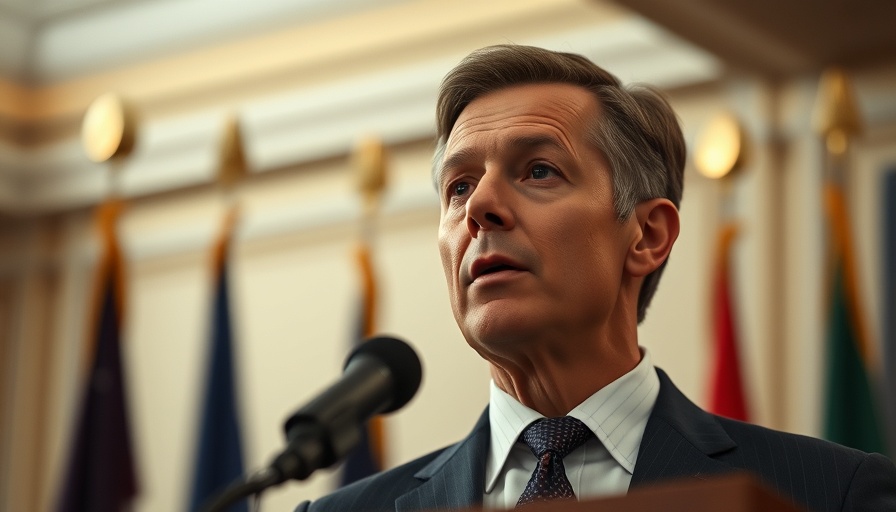
Russia's Pretenses of Peace Amid Ongoing Conflict
Ukrainian President Volodymyr Zelenskyy has voiced deep concerns regarding Russia's commitment to peace, particularly in the wake of President Vladimir Putin's announcement of a temporary ceasefire intended to coincide with the Easter festivities. Despite this declaration, evidence on the ground suggests a starkly different reality. Zelenskyy publicly accused Russia of projecting a false impression of compliance and restraint, while in reality, military operations have continued unabated.
"As of Easter morning, we can say that the Russian army is trying to create a general impression of a ceasefire, but in some places, it does not abandon individual attempts to advance and inflict losses on Ukraine," stated Zelenskyy, outlining the complicated and often deceptive nature of the ongoing conflict.
The Reality of Warfare: Shelling and Assaults Persist
Since the ceasefire announcement, Ukrainian forces have documented at least 59 instances of Russian artillery shelling alongside five direct assaults from Russian units along the front lines. The situation has exacerbated fears and raised questions about the authenticity of Russia's ceasefire intentions. Despite the announcement, the trend of increasing reliance on heavy weaponry by Russian forces shows no signs of abating.
Zelenskyy noted, “While we have declared a symmetrical approach to Russian actions, the Russian military continues to escalate their use of firepower. This troubling trend continues to pose a significant threat to our forces.” He highlighted a recent incident where Ukrainian troops fell victim to a Russian ambush in the Donetsk region, further illustrating the direct dangers faced by military personnel.
The Broader Implications of a Flawed Ceasefire
The juxtaposition between the announced ceasefire and the continued military aggression has broader implications for the peace process in Ukraine. Analysts argue that such maneuvers by Russia reflect a strategic intent to undermine trust in negotiations, affecting both domestic and international perceptions of the conflict.
By manipulating narratives about peace while perpetuating violence, Russia could be aiming to weaken Ukraine's resolve and fracture international support for Ukraine’s sovereignty. The ongoing skirmishes and calculated disinformation can result in a delicate, precarious situation for Ukraine, as allies may find it challenging to navigate a policy of support amidst fluctuating conditions on the ground.
How Ukraine Is Responding
In response to the evident discrepancy between Russia's claims and actions, President Zelenskyy emphasized a commitment to vigilance, promising retribution against Russian aggression. He stated, “Those responsible for the ambush will be eliminated,” highlighting a determined stance against aggressors and underscoring Ukraine’s resolve for justice and security for its troops.
Moreover, this situation serves as a rallying point for Ukraine's national identity, galvanizing public support against perceived external threats. The narrative of resilience against aggression is becoming a cornerstone of national unity and political legitimacy within Ukraine.
International Community's Role: Monitoring and Support
The role of the international community remains critical as conflicts like the one in Ukraine unfold with complex dynamics. Ensuring accurate information dissemination and monitoring of ceasefires is pivotal for external powers in assessing strategies that can effectively address the conflict.
Support from NATO and the European Union continues to bolster Ukraine, but the nature of military engagements poses significant challenges for diplomatic efforts. Strengthened positions are required from international bodies to scrutinize compliance with ceasefires and hold aggressors accountable.
Conclusion: The Path Forward in Ukraine
As the situation in Ukraine continues to evolve, it's essential for both domestic and international stakeholders to maintain pressure on Moscow to adhere to genuine ceasefire agreements. The conflict's ongoing nature serves as a reminder of the fragile balance of diplomacy and the harsh realities of war. Continued engagement, dialogue, and strategic support for Ukraine will be crucial in navigating this challenging landscape.
Now is the time for concerned citizens and global leaders alike to remain engaged with the developments in Ukraine, advocating for peace and supporting initiatives that counteract misinformation and aggression. The path forward may be treacherous, but hope remains in the resilience of Ukrainians fighting for their sovereignty.
 Add Row
Add Row  Add
Add 




 Add Row
Add Row  Add
Add 

Write A Comment